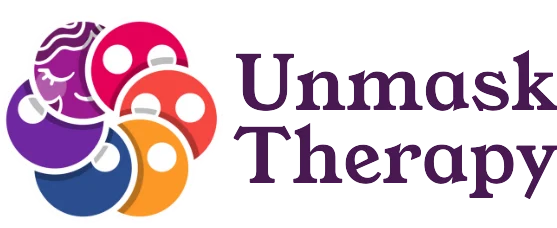Narrative Therapy in Melbourne: Reclaiming Your Story from the Problems That Define You

In our Narrative Therapy in Melbourne sessions, we often begin by exploring this simple but powerful question How many beliefs, expectations, and values about yourself did you choose?
Are they based on your strengths, hopes, and what matters to you, or shaped by what others decided for you? You might insult yourself or diminish your skills. Maybe it’s not so direct, and you tell yourself, “I shouldn’t take a break, I’m not even close to finishing,” or “my friends are probably tired of dealing with me.”
Have you ever paused and wondered – says who? What makes these things true, and why do I believe them? The stories you tell yourself are complex, constantly evolving, and often developed for a reason, but they don’t always serve your best interests.
It can feel like…
- There’s something “wrong” with you that needs fixing.
- Everyone else gets to define who you are, including your family, teachers, and society, except you.
- Therapy has focused on your problems, not your skills, strengths, or how you’ve resisted them.
Narrative Therapy helps
return your story to you
Narrative Therapy in Melbourne is a strength-based, non-pathologising approach that views you as separate from your problems.
Together, we look at how certain stories took hold and how to re-author them into something that reflects your values, identity, and intentions.
“The person is not the problem. The problem is the problem.”

How Narrative Therapy works
Together, we focus on the stories that shape how you see yourself and the world. Through conversations, curiosity, and reflection, we explore:
- How were your current stories formed
- The influence they have on your thoughts, emotions, and relationships
- The untold or overlooked parts of your story that hold hope, meaning, and strength
This process often feels like turning the page and finding a forgotten chapter that’s still true about you.
What to expect
From the outside, Narrative Therapy might look like any other therapy session – maybe with a little more drawing or singing, depending on the people involved. But the conversations will likely have more:
- Questions, and lots of ‘em! Narrative Practitioners take nothing for granted – we want to know what it’s like for you, not for “the average person”.
- Collaboration, because you’re the expert of your experience, and the new ideas and strategies we create will come from your unique experiences.
- Turning your lens on the people, ideas, and situations in your life, and scrutinising it all the way you’ve been scrutinised.
At Unmask Therapy, sessions are available both in-person in Melbourne and online across Australia. Each session lasts around 50 minutes, and the pace depends entirely on your comfort and goals.


How it can help you
Narrative Therapy can support you if you’re:
- Feeling defined by anxiety, shame, or trauma
- Struggling with self-worth, relationships, or identity
- Wanting to separate from “problem-saturated” stories
- Ready to create a life that reflects your own values, not others’ expectations
By questioning what you’ve accepted as normal, Narrative Therapy helps you to start being intentional about the rules and beliefs in your life. It helps to wrangle those automatic thoughts so you can question them, instead of agreeing with beliefs that have only harmed you.
You’ve survived every day so far. Now let’s figure out how you did it — and how to make tomorrow less work than yesterday.
Narrative Therapy gives you room to step back and see the bigger picture — not as someone broken, but as someone brave enough to keep rewriting.
Curious about Narrative Therapy in Melbourne?

Narrative Therapy could be a good fit for you if…
- You haven’t been treated like the expert of your life, and want a space that respects your journey
- It feels like a problem has taken over your life, and you’re not in control anymore.
- You find personal meaning in metaphors, stories, patterns, and cultural wisdom
- Past therapy has been “problem-focused,” and you felt like something was missing (though it may still have been a valuable experience!)
In short, if you’re ready to reconnect with the parts of yourself that have been hidden or dismissed, Narrative Therapy may be a good fit.
Narrative Therapy in Melbourne — Why Local Matters
Based in Melbourne, VIC, Unmask Therapy’s founder, Felix, offers in-person and online sessions to fit your lifestyle with 9 years of experience.
Whether you’re new to therapy and exploring what support could look like, or bringing years of knowledge and experience of what has – and hasn’t – worked in the past, Narrative Therapy provides a space that respects your story within your local context.
Therapy can involve the past, present, and the future, and sometimes you just need to talk to someone who understands the local context and social pressures you’re facing.
Ready to begin?
Book a Session!
Your story is already full of strength; let’s uncover it together.
Book a free consultation for Narrative Therapy in Melbourne and start rewriting your next chapter with kindness and clarity.
Looking to book an appointment or free 15 minute phone consultation?
Felix is available Monday to Thursday from 10 am to 8 pm, and Sunday from 11 am to 5 pm.
You can also book a session online anytime through the calendar.
FAQs
Who is Narrative Therapy for?
Narrative therapy is suitable for individuals, couples, families, and groups. It’s especially effective for those dealing with identity struggles, trauma, life transitions, or feeling stuck in patterns of self-blame or hopelessness.
What happens in a Narrative Therapy session?
Sessions involve storytelling, asking reflective questions, exploring past and present experiences, and discussing alternative ways to view problems and relationships.
What does “the person is not the problem, the problem is the problem” mean?
It’s a quote by Michael White, who founded Narrative Therapy. It means that a person’s identity is separate from their struggles. It emphasises that problems come from external factors, not inherent flaws within us.
Do I need to journal or write?
Writing can be a helpful tool, but it’s not required. Many people explore their stories verbally, through art, or other creative expressions during sessions.

